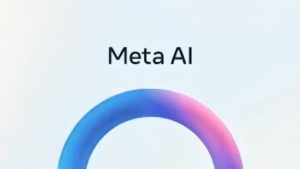Meta to Implement AI Disclosure Requirements for Political Advertisements Before Canadian Elections

As artificial intelligence (AI) continues to develop, the risk of digital misinformation spreads, especially in politics. With Canada’s federal elections on the horizon, Meta Platforms is stepping in to prevent AI manipulation in political advertising. Their goal is to rebuild trust in a climate where “seeing is no longer believing.” To combat this, they are mandating that advertisers disclose when they utilize AI or other digital tools to alter campaign content.
Recently, Meta announced that it will require political advertisers to declare if any AI or digital methods were used in creating their ads. The intention behind this policy is to foster transparency, helping voters understand if and how campaign messages have been digitally altered.
New Requirements for Advertisers
The new regulations from Meta are aimed at advertisers using photorealistic images, videos, or audio that are either digitally created or modified. This applies to advertisements where real people appear to say or do things they did not actually say or do, ads featuring fabricated individuals or events, and edited footage of real-life happenings. The disclosures are designed to help limit the spread of manipulated content that could mislead voters and impact public discourse.
Meta’s Political Ad Policies
This initiative is in line with Meta’s earlier decision to extend a ban on new political ads implemented in November 2023, following the U.S. elections. Concerns were raised regarding the rise of misinformation during past election cycles, contributing to this decision. Throughout the past year, Meta has restricted political campaigns and advertisers from accessing its newly offered advertising tools powered by generative AI.
Despite these measures, Meta has faced criticism for reversing some fact-checking initiatives. The company ended its entire fact-checking program in the U.S. earlier this year due to debates surrounding sensitive topics like immigration and gender identity. This shift seemed to arise from pressure from conservative groups advocating for less stringent moderation of political content.
Challenges and Future Implications
Meta has suggested that generative AI will not greatly impact its platforms. As of December 2024, AI-generated content has seen little integration on Facebook and Instagram. Nevertheless, there remain serious concerns about the potential implications that advanced AI tools could have on political messaging as they become more accessible and sophisticated. To enhance transparency, Meta is also working on a tool that allows users to voluntarily notify others when sharing AI-generated content, with the aim of applying appropriate labels. The effectiveness of this feature will depend on user participation.
Meta’s new disclosure policy represents a proactive measure to protect democratic processes as Canada prepares for its federal elections. The success of this policy, however, hinges on how well advertisers comply and how effectively Meta can enforce these regulations. Although this new approach can be regarded as a positive step, questions remain regarding the company’s greater responsibility in combating misinformation. As political campaigns increasingly embrace AI in their strategies, voters and regulators must remain alert and discerning when assessing the credibility of digital campaign materials.






